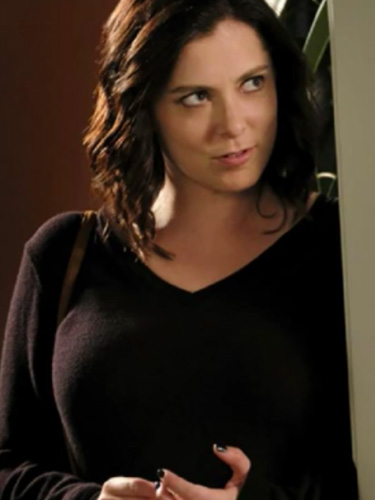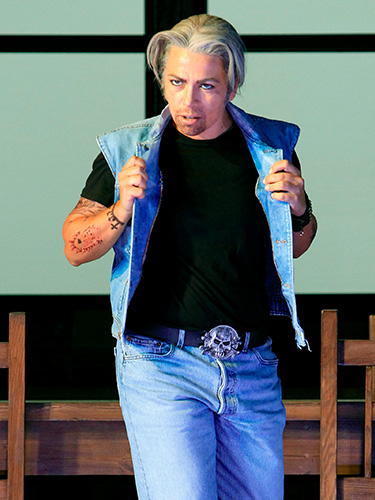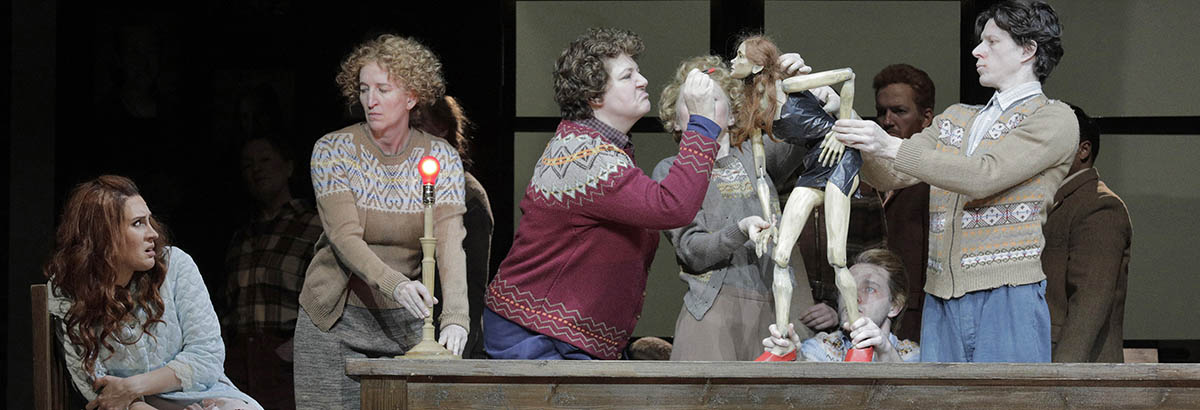April 17, 2019
Modern Match - Ariodante
Baroque opera, especially Handel opera, prioritizes beautiful melodic singing while relying on emotion to carry the plot. The convoluted schemes, mistaken identities, and star-crossed lovers of Ariodante are connected by a series of heart-wrenching arias – moments when the plot pauses to allow the audience to engage their empathy. Modern television shows like Glee and Smash also use music to express the characters’ emotions. No show does this better than Rachel Bloom’s Crazy Ex-Girlfriend.
Ariodante and Crazy Ex-Girlfriend share similarities in their premise. Both shows feature a jealous lover who sets in motion a scheme designed to help win over their beloved. Polinesso tries to win Ginevra from the prince Ariodante. In Crazy Ex-Girlfriend, Rebecca Bunch moves across the country to find her childhood crush, Josh Chan. Both Polinesso and Rebecca manipulate the people around them, using others’ admiration as weapons of jealousy. Both shows see these characters punished as a result. But beyond the similar plot points, the shows are united by the overwhelming role that music plays in providing insight into the characters’ emotions.

Rebecca Bunch (Rachel Bloom) in Crazy Ex-Girlfriend

Sonia Prina as Polinesso in the Aix-en-Provence Festival production of Ariodante
What separates Crazy Ex-Girlfriend from other musical comedies is that it uses only original music written by the show’s creators. Loosely parodying Broadway tropes and pop favorites, songs like “Settle for Me,” “The Math of Love Triangles,” and “We’ll Never Have Problems Again” have a comedic bent that manages to keep things light, but they also reveal the underlying delusions of the crazy ex-girlfriend herself. At first, these songs seem to spring from Rebecca’s unhinged imagination, but the music begins to infect everyone in town as more characters sing, dance and participate in the musical fantasy. Viewers are exposed to the inner-most thoughts of every character through music, letting audiences experience greater empathy exploring a larger emotional range than a typical sit-com. Crazy Ex-Girlfriend is funny, but it also explores darker themes of family trauma and mental illness.
The characters in Ariodante also manage to engage audiences through the power of Handel’s magnetic melodies. Though the story ends happily, the music conveys an incredible range of emotions. Take, for example, Dalinda’s assertion that she is willing to go to extremes to win Polinesso’s heart, or “Scherze infida,” Ariodante’s aria in which he contemplates death in the face of Ginevra’s seeming infidelity. We don’t typically expect such vulnerability from the male hero, yet Ariodante endures due to its emotional honesty.
All these characters use music to examine what it means to be driven “crazy” by love. Rebecca sums up her own sentiments when she sings, “I’m just a girl in love / I can’t be held responsible for my actions!” But the show proves everyone must be held responsible for their actions, regardless of emotion. And this is indeed true by the end of the opera: with Dalinda’s and Lurcanio’s help, Ariodante triumphs over Polinesso and wins Ginevra’s hand. Dalinda confesses her unwitting crimes and is forgiven. The triumph is all the more satisfying due to the musical/emotional journey that led to it.
The writer, an intern in Lyric’s marketing and communications department in spring 2018, is currently the relationship marketing associate at the Chicago Symphony Orchestra.

